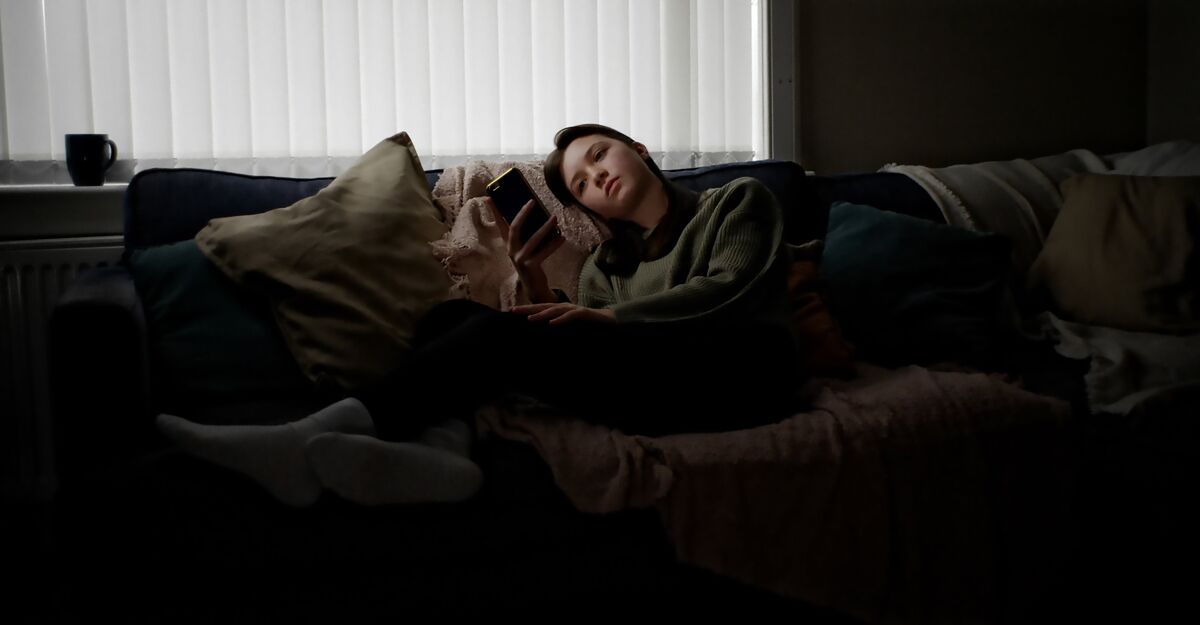Protecting your child from online harm
Advice for parents from Children First
By Mary Glasgow, Chief Executive, Children First

Advice for parents from Children First
If you’re feeling overwhelmed and uncertain about how to approach your child’s use of a smart phone, you are not alone. Weighing up whether a smartphone will make it easier for you to keep in touch with your child or help your child feel closer to their friends against the risks of exposing your child to ever-growing threats of online harm is no easy matter.
Over 60% of eight to 11 year olds and nearly a quarter of five to seven year olds now own their own smartphone, yet parents’ concerns about who their child is in contact with when using their phone has more than doubled in the last thirteen years.[i] Parents and carers tell our Children First support line it can feel impossible not to give in to the pressure to hand their child a phone or to let them access social media apps. And whether or not your child has a smartphone, it can be one of the biggest causes of arguments and conflict in family homes across Scotland.
So, what can you do to help keep your child safe?
Think carefully about at what age you believe your child can manage the realities of a smartphone. Do your research before deciding if your child is ready for a smartphone and what apps they can have access to. A good test is to ask yourself if you feel ready to talk with your child about the risks of having a smartphone. When you hand your child a smartphone you need to talk to them openly about the possibility of online bullying, receiving and responding to inappropriate messages and the risks of seeing or sharing sexual or violent images. It’s down to you as a parent or carer to decide if your child is ready for a phone, but if the time doesn’t feel right to talk honestly with your child about the risks, it’s not the right time to give them a phone. You might want to talk to the parents of your child’s friends to see if you can agree to set the same limits.
The idea of starting a conversation can seem really hard especially if you feel out of your depth with technology or embarrassed about some of the things your child might be exposed to. Talking with your child, early and often, is the most important thing you can do to help keep them safe online. Making sure they understand what could happen and how you will help them to handle it, will make it much easier for them to turn to you for support, if and when they need to.
Using stories in the media or asking whether your child is learning about online safety at school can be a great way to start a conversation. Ask them, “what would you do if?” These can also be good starting points for calm conversations with your child about keeping themselves safe if they already have a smartphone. Be curious and try and be non-judgmental about what your child is telling you. Asking them what is good about smart phones and social media, what they find hard and if there is anything you can help with, are all ways to open up the conversation. Listen and agree some rules for helping to keep safe online together.
As early as possible, make a plan together with your child about how to manage and talk about what they might see, hear or experience as a result of having a smartphone. Be clear with your child that whatever might happen, it can be fixed. They are a child and if they do get into difficulties, are threatened or blackmailed it is not their fault. Above all else, your child needs to know that if the worst happens, they can turn to you, that you will support them and that you will never, ever stop loving them.
If you feel unsure about how to talk to your child about staying safe online or are worried about your child’s use of social media our Children First support team can help.
Call the Children First supportline on 08000 28 22 33 or visit our website to start an online chat childrenfirst.org.uk/supportline.
[i] Ofcom 2024 Children and Parents: Media Use and Attitudes Report. Childrens Media literacy report 2024
This blog is part of our Fearless Scotland sextortion campaign. You can learn more about the campaign: https://crimestoppers-uk.org/fearless/professionals/fearless-scotland/sextortion-campaign
